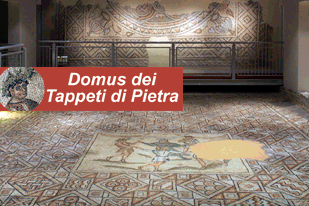Arminius Thumelicus Thusnelda Ravenna








Thumelicus, son of Arminius and Thusnelda in Ravenna.
Hotels in the historical centre of Ravenna. 9 AD: Arminius, aristocrat of the romanized Cherusci tribe, draws three Roman legions commanded by general Varus into an ambush: a ferocious battle followed, known as the Battle of the Teutoburg Forest, during which 3 legions were destroyed, their flags relinquished. It was like this that the legend of Arminius (Hermann) was born, tied to the myth of Sigurd, a patriotic and freedom fighting hero against invaders for Germans. Arminius married Thusnelda, the daughter of Segestes a Cheruscan notable who was allied with Rome. 15 AD: Germanicus (Roman Commander) freed Segestes and took Thusnelda as a prisoner who was pregnant with Arminius’s child, as well as other German Nobles that had betrayed Rome, taking back the insignas that were earlier taken from Varus. Thumelicus, the son of Arminius and Thusnelda was born a prisoner. The historians Tacitus and Strabo only mention the fate of Thumelicus and Thusnelda in prison very briefly. Arminius died in 19 AC, killed by members of his family. 17 AD: Germanicus received all the honours of victory from emperor Tiberius in Rome, the prisoners paraded were Thumelicus (3 years old at the time) and Thusnelda, as well as Segimundo, leader of the Cherusci, and other German nobles. Ravenna was on the sea, surrounded by swamps, home of the eastern fleet and easy to defend. It was also the home of an important school for gladiators founded by Cesar; near an important Circus (in the area where Via Cerchio is currently located) and an amphitheatre (Porta Aurea area), the remains were probably used to construct Saint Vitale. But currently no architectural evidence of a Circus or Amphitheatre has been discovered. Some researchers propose that Thumelicus was raised to be a gladiator and died in Ravenna around 30 AD, probably during a gladiator tournament in the Circus, institutions used for celebrating the victory of Romans over the Germans.
This story takes place in the centre of Ravenna.
The battle left a strong scar on the Roman community and significantly influenced its history: After this the Romans found the conquest of German territories between the Rhine and Elbe rivers unprofitable, even though they maintained a strong cultural, economical and political influence.
The following Emperor August gave the command of the German Royal Legions to Germanicus, that from 14 to 16 AD conducted many victorious battles in the east of the Rhine river.
Tacitus (Roman historian) describes Thusnelda as proud and strong during her capture and in prison and always faithful to Arminius.
Tacitus later wrote that Thumelicus was raised in Ravenna where he died, it isn’t known if this was with or without his mother. It is probable that Thumelicus was sent to Ravenna far from his mother, given her pride and the Roman’s desire to raise him as a Roman apart from the Germans.
And so the tragic story ends in the centre of Ravenna (one of many in its long history filled with splendour and ruin).
The pleasure of fine accommodation in the centre of Ravenna: we recommend the Fabbri hotels for a pleasant stay as follows:
The Centrale Byron hotel, 3-star, in the centre of Ravenna,
The Bisanzio Hotel, 4-star hotel in the centre of Ravenna,
Once you have reached the hotel and parked your car, forget it and walk everywhere, because everything is within walking distance.
The railway station is near our hotels and within walking distance of them.
© reserved copyright





